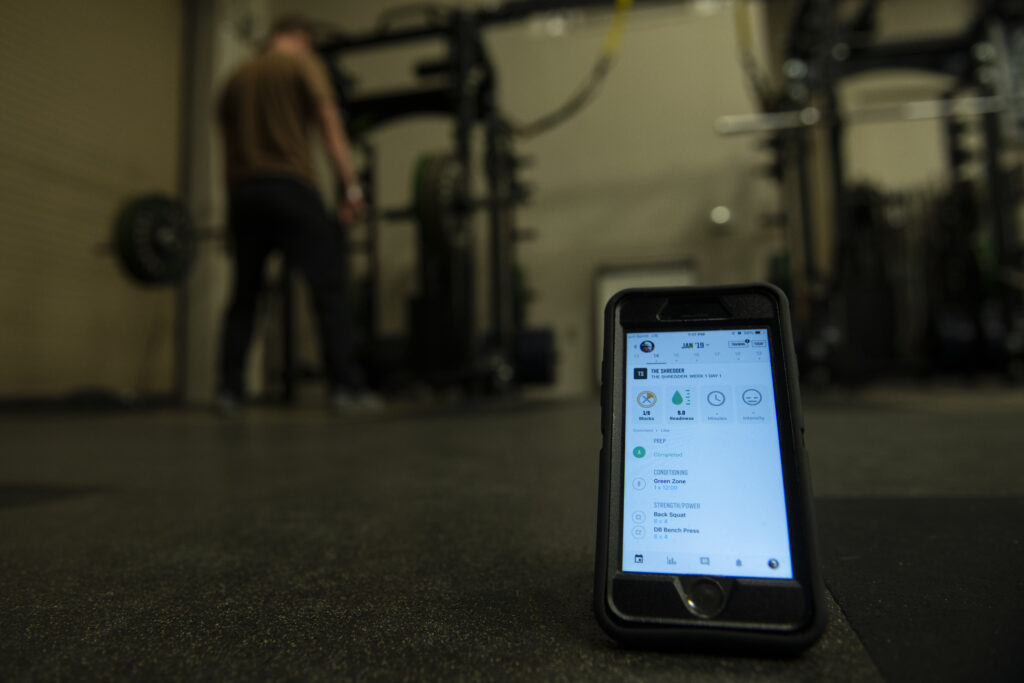
SOCOM’s Human Performance Program includes innovating capabilities for physical training, injury mitigation and performance nutrition.
WASHINGTON: Special Operations Command expects to move into clinical trials next year of a pill that may inhibit or reduce some of the degenerative affects of aging and injury — part of a broader Pentagon push for “improved human performance.”
The pill “has the potential, if it is successful, to truly delay aging, truly prevent onset of injury — which is just amazingly game changing,” Lisa Sanders, director of science and technology for Special Operations Forces, acquisition, technology & logistics (SOF AT&L), said Friday.
“We have completed pre-clinical safety and dosing studies in anticipation of follow-on performance testing in fiscal year 2022,” Navy Cmdr. Tim Hawkins, a SOCOM spokesperson, said.
SOCOM is using Other Transaction Authority (OTA) funds to partner with private biotech laboratory Metro International Biotech, LLC (MetroBiotech) in the pill’s development, which is based on what is called a “human performance small molecule,” he explained.
“These efforts are not about creating physical traits that don’t already exist naturally. This is about enhancing the mission readiness of our forces by improving performance characteristics that typically decline with age,” Hawkins said. “Essentially, we are working with leading industry partners and clinical research institutions to develop a nutraceutical, in the form of a pill that is suitable for a variety of uses by both civilians and military members, whose resulting benefits may include improved human performance – like increased endurance and faster recovery from injury.”
Hawkins said SOCOM “has spent $2.8 million on this effort” since its launch in 2018.
A “small molecule” in biology is a low molecular weight organic compound, many of which regulate biological processes and often form the basis for drugs, i.e. ‘pharmaceuticals.’ A ‘nutraceutical,’ by contrast, is “a food containing health-giving additives and having medicinal benefit,” according to the Oxford Dictionary — in essence a dietary supplement.
But in the case of the SOCOM program, the pill in question is the result of biotechnology.
MetroBiotech did not respond to a request for comment. However, its website explains that the firm has developed a number of proprietary precursor compounds for “nicotinamide adenine dinucleotide (NAD+)” which “is critically important to the function of all living cells.”
The website explains that “reduced levels of NAD+ are linked to aging and numerous diseases, including mitochondrial dysfunction, inflammation and a variety of associated diseases. These levels decline as humans age and remain depleted during disease states. Preclinical evidence suggests disease- and age-related functional decline can be mitigated by boosting NAD+, which supports the Metro International Biotech hypothesis that maintaining optimal NAD+ levels may allow humans to lead longer and healthier lives.”
Sanders told the Defense One Defense Tech Summit that SOCOM’s ability to use OTAs and Middle Tier Acquisition authorities has helped the command “explore things in this burgeoning sector of biotechnology.” Those authorities have allowed SOCOM to enter into partnerships with industry, research institutes and labs to spur commercial research that could result in health benefits for the troops, she explained.
SOCOM has “stayed out of long-term genetic engineering — that makes people very very uncomfortable,” Sanders said, “but there’s a huge commercial marketplace for things that can avoid injury, that can slow down aging, that can improve sleep.”
Indeed, SOCOM has been working to bolster its relationships with small businesses and innovative companies involved in emerging tech, including biotech and artificial intelligence. Its innovation arm, SOFWERX, launched a campaign in May to speed contracting with non-traditional DoD suppliers.
In a ‘world first,’ DARPA project demonstrates AI dogfighting in real jet
“The potential for machine learning in aviation, whether military or civil, is enormous,” said Air Force Col. James Valpiani. “And these fundamental questions of how do we do it, how do we do it safely, how do we train them, are the questions that we are trying to get after.”


























